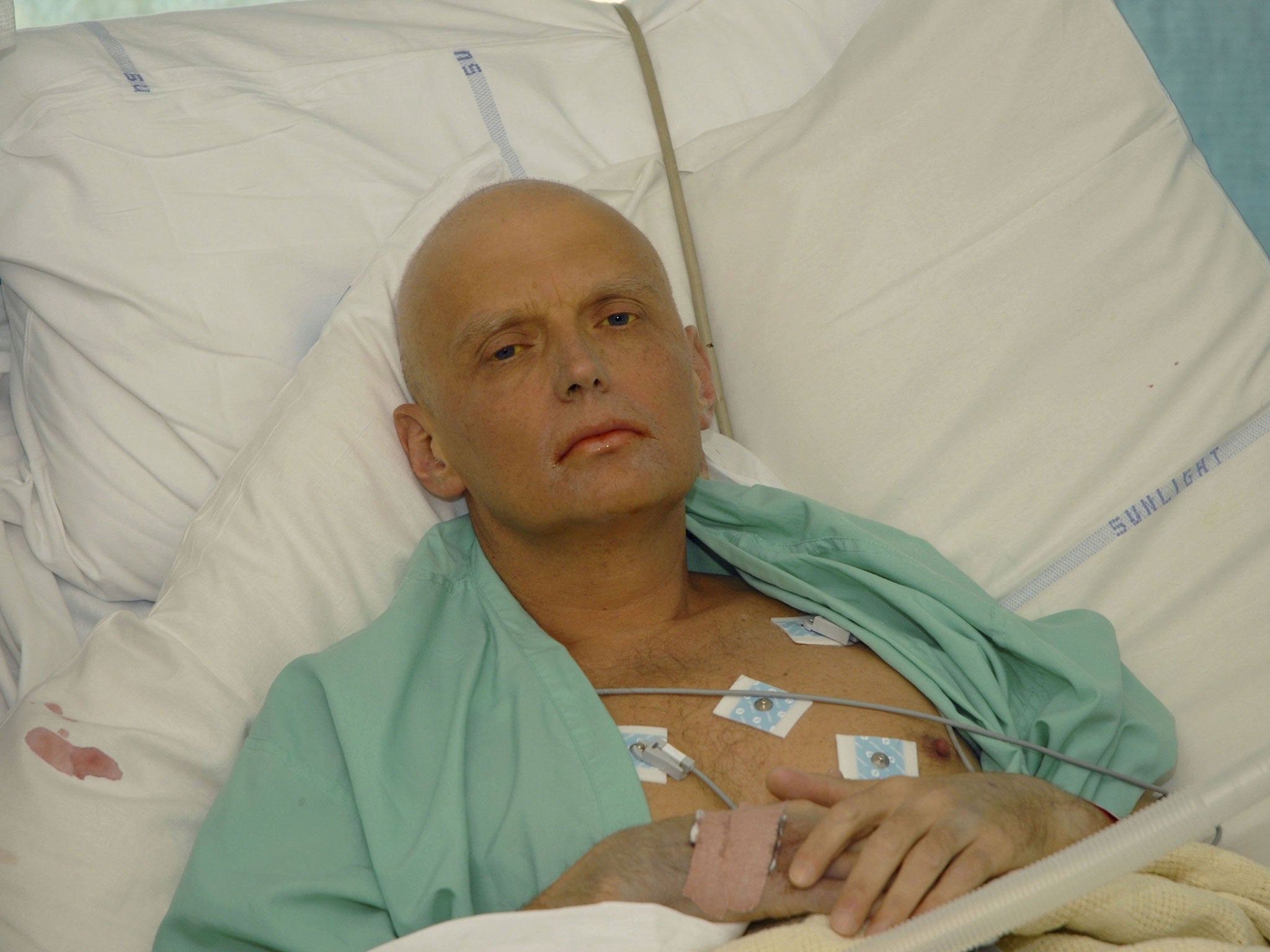Litvinenko inquiry: Britain cannot let Russia get away with murder
We have seen the worst of Russia in this saga - now we must both hope for the best

Your support helps us to tell the story
From reproductive rights to climate change to Big Tech, The Independent is on the ground when the story is developing. Whether it's investigating the financials of Elon Musk's pro-Trump PAC or producing our latest documentary, 'The A Word', which shines a light on the American women fighting for reproductive rights, we know how important it is to parse out the facts from the messaging.
At such a critical moment in US history, we need reporters on the ground. Your donation allows us to keep sending journalists to speak to both sides of the story.
The Independent is trusted by Americans across the entire political spectrum. And unlike many other quality news outlets, we choose not to lock Americans out of our reporting and analysis with paywalls. We believe quality journalism should be available to everyone, paid for by those who can afford it.
Your support makes all the difference.A British citizen was murdered on the streets of London by radioactive poisoning from a teapot in a “hit” probably approved by a foreign head of state. This astonishing allegation is the new basis of the relationship between Britain and Russia. It needs a clear, strong and effective response and may, in the short term, put Moscow in the diplomatic deep freeze.
Alexander Litvinenko’s past, in which he worked with a variety of foreign intelligence agencies, cannot impinge on the fact that, as a British citizen living in this country, his murder has to be taken with the utmost seriousness. Nor does the instinctive Russian response to the revelation – branding the report a “joke”– do much to reassure any of us about the chances of a grown-up discussion of the subject, let alone the acceptance of responsibility for an innocent man’s death.
International relations should, of course, carry a heavy dose of pragmatism. But they lose all meaning if particular states refuse to play by the rules, or if countries fail to bring their own (preferably civilised) values to bear on the international stage. David Cameron accused Russia of “state-sponsored” murder, and promised further asset freezes. The Prime Minister appeared apprehensive of going too far – citing the need to find some solution to the Syria crisis, in which Russia has assumed a key role.
This is hardly an acceptable reason to go easy on punishing a murder: Litvinenko’s death cannot be treated in isolation, but cannot be forgiven, either. Cameron is right, however, that new economic sanctions would only further distance a diplomatic path to peace.
A man has been murdered; his grieving widow has been on a long and almost unimaginably grim journey in search of justice. This is the personal tragedy of the case, and it is awful. The wider picture is of an already strained bilateral relationship that is now broken, and will take years to rebuild.
We have seen the worst of Russia in this saga. Now we must both hope for the best, and hope that the best is good enough. On yesterday’s evidence, we may be hoping for some time.
Join our commenting forum
Join thought-provoking conversations, follow other Independent readers and see their replies
Comments